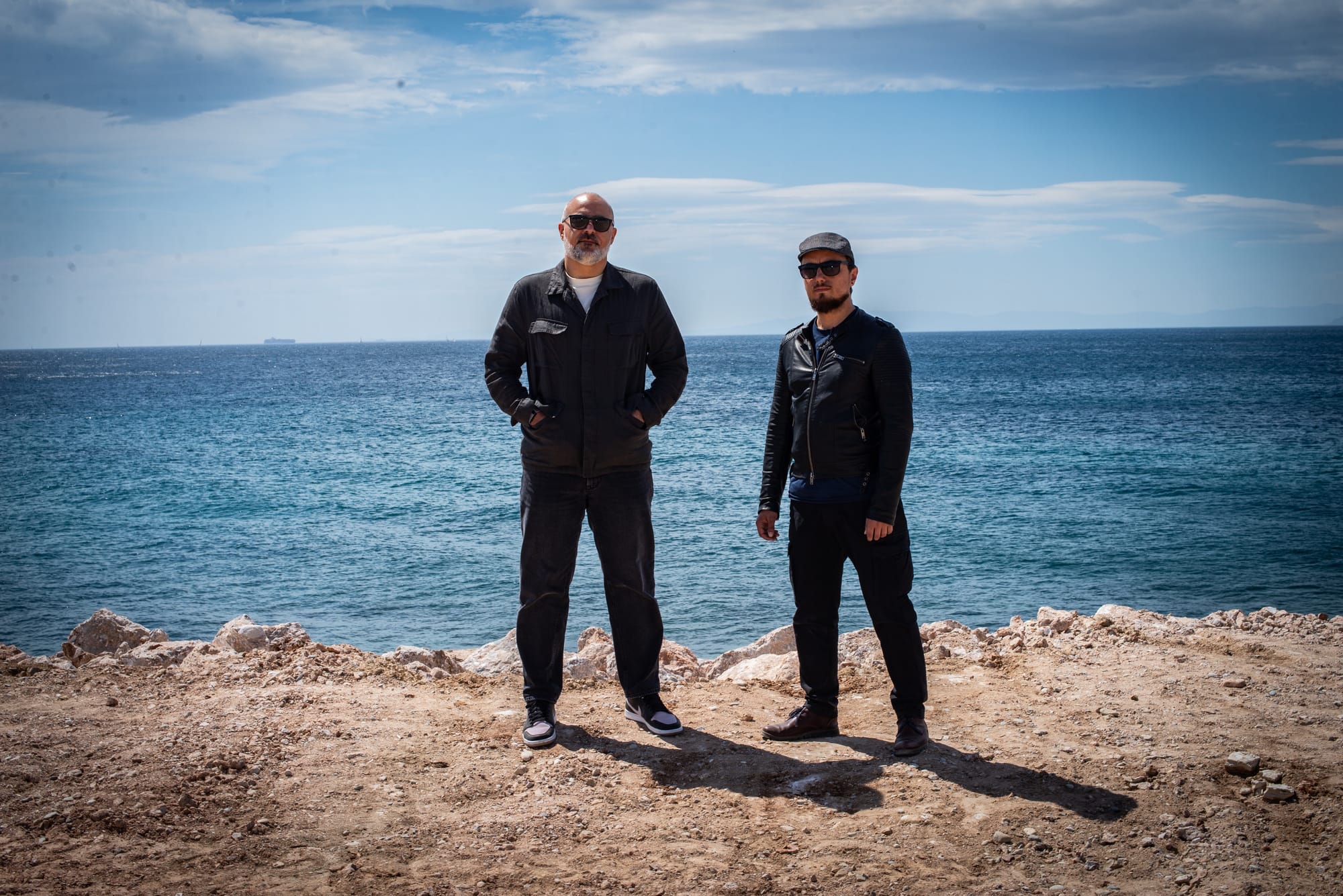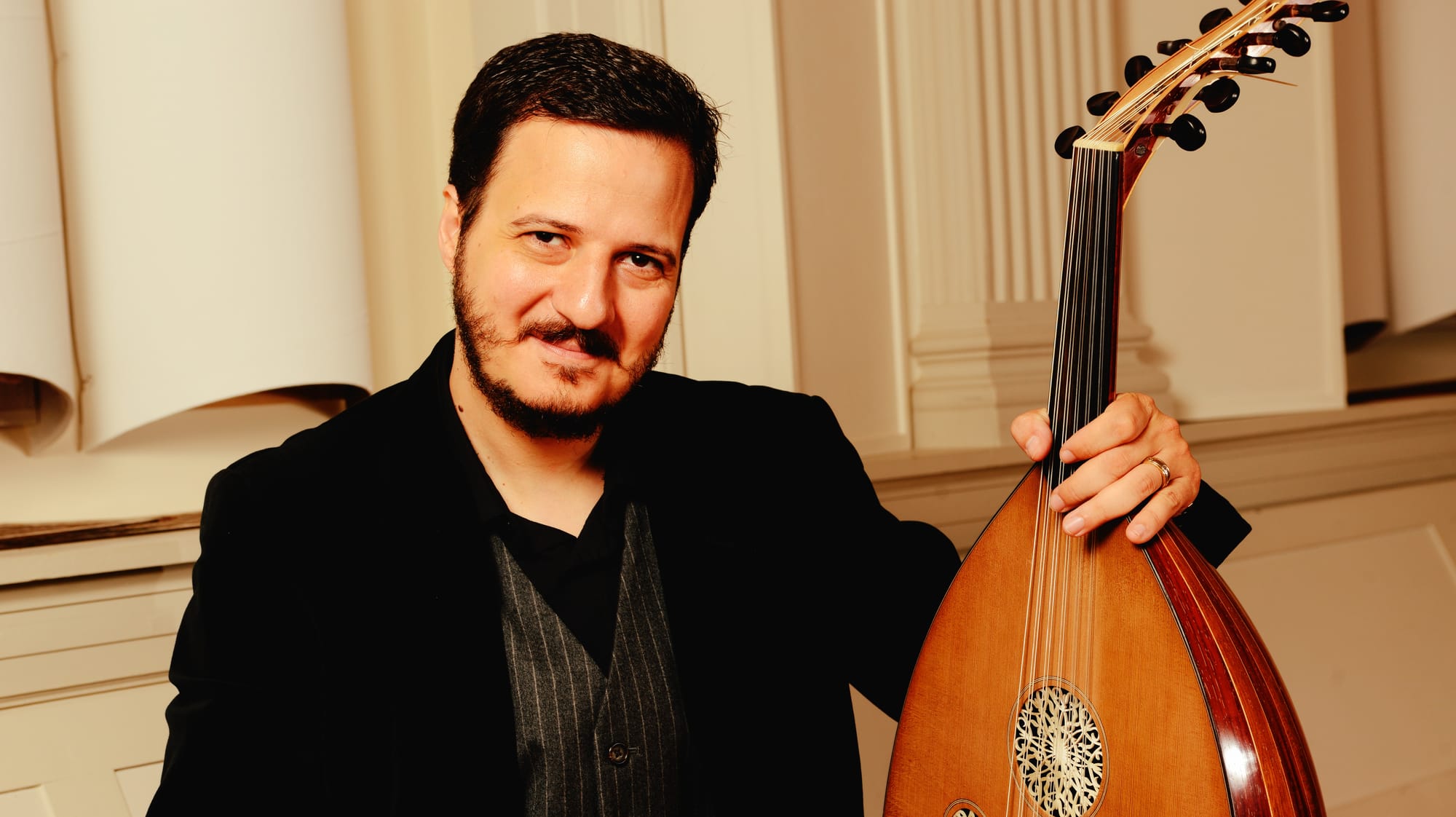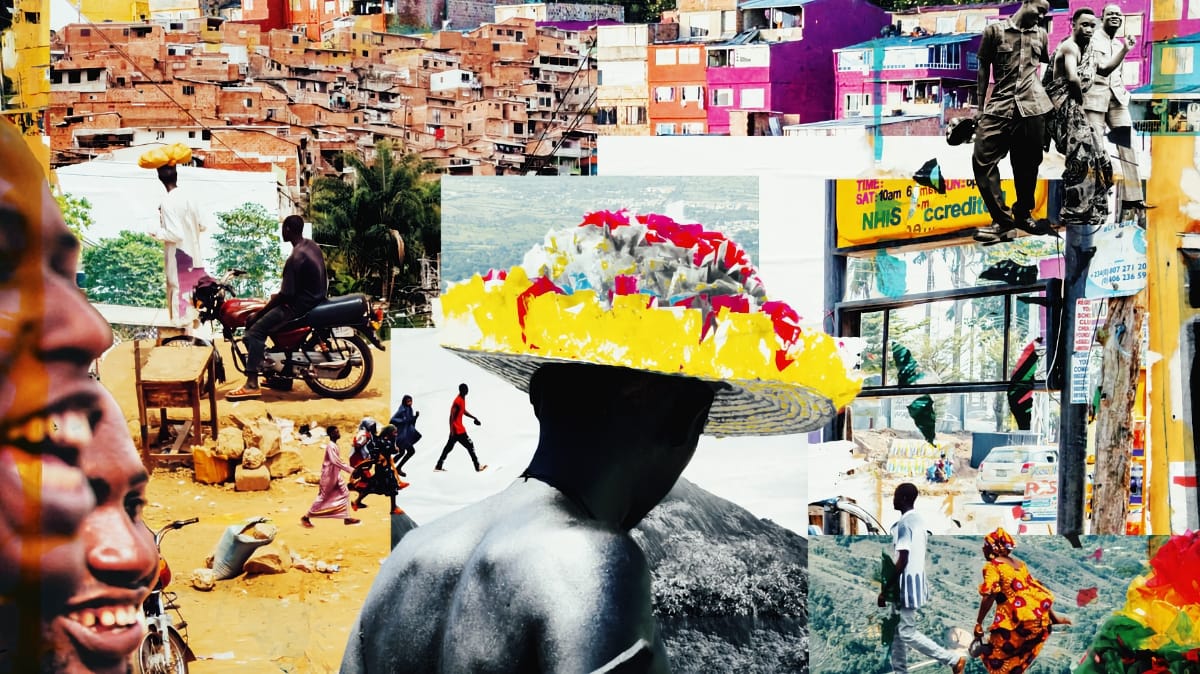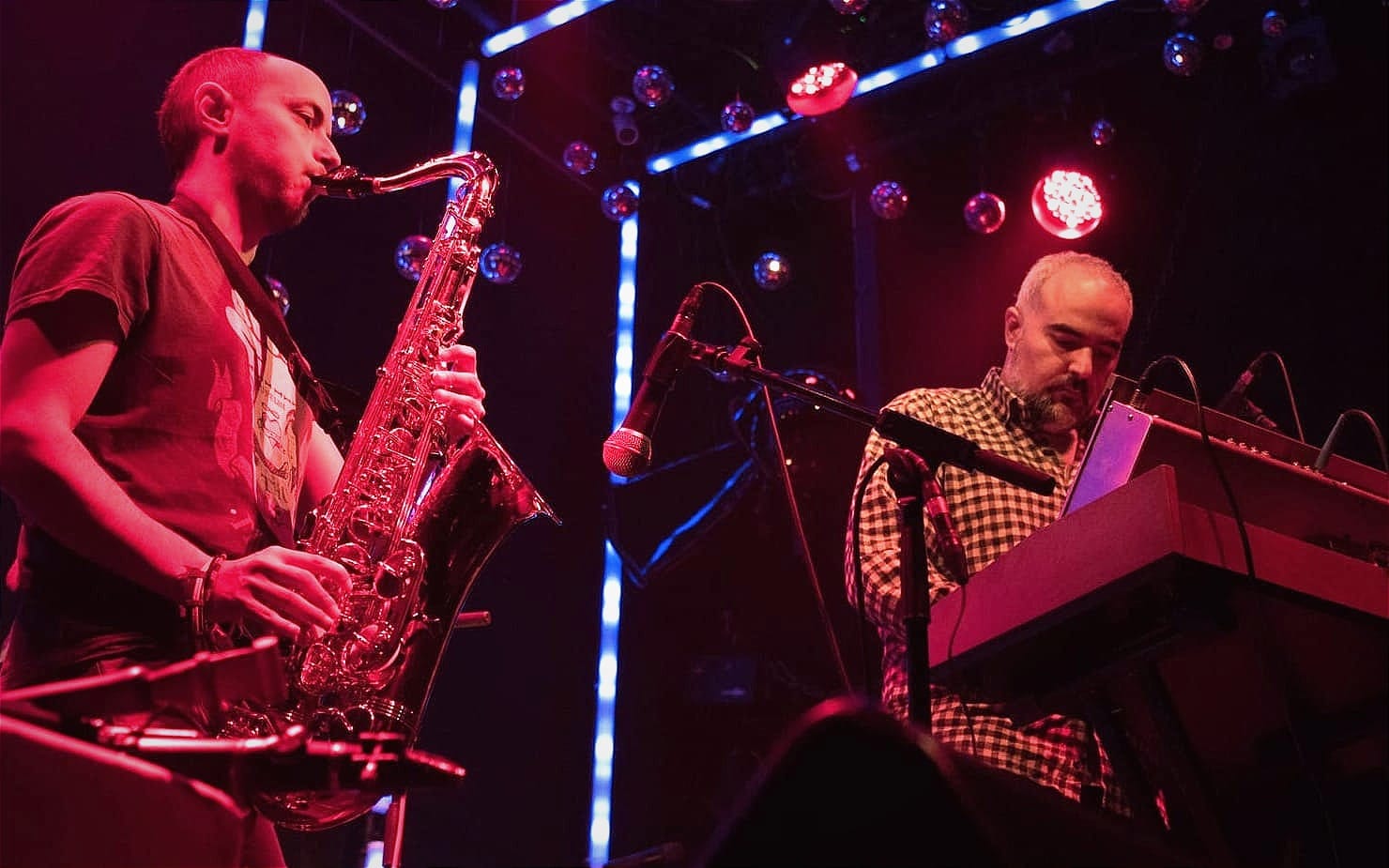An abandoned village sits high in northern Greece's Epirus region, where two musicians find inspiration in the past. Kolida Babo—the project of woodwind players Socratis Votskos and Harris P.—borrows its name from an ancient winter ritual of fire and dance. Their new album, Spirits of Mauronoros, captures emptiness and life in this remote borderland near Albania.
Their music blends Armenian duduk melodies, Greek folk traditions, free jazz, and electronics. Recording between Athens and Aridaia, they make music that crosses time and culture, neither preserving nor fusing but expressing Greece's history of upheaval and transformation through sound.

Lawrence Peryer: I'm very curious about the beginnings of your collaboration and how you came together during the Kolida Babo rituals.
Harris P.: I first encountered this tradition in northern Greece, in Aridaia, Socratis's hometown. Coming from Athens, it was my first exposure to something like this. While Greece has many traditions that combine dancing and music, Socratis introduced me to this particular custom.
Socratis Votskos: This medieval tradition, which became our band's namesake, has deep roots in the region. 'Kolida Babo' refers to a carol tradition, specifically the day preceding the actual carols, when people gather to build large fires and dance around them accompanied by local traditional music. The following morning is dedicated to carol singing.
The name itself has interesting origins—'Babo' means grandmother in the traditional Slavic language, which influenced the regional dialect of northern Greece. 'Kolida' is derived from 'Koliada,' the Greek word for carols.
The tradition has various interpretations. One connects it to the story of the infant Jesus Christ, suggesting it was used to warm families during their search for the baby Jesus. This interpretation likely represents a fusion of pre-Christian traditions with later Christian elements.
Harris arrived in Aridaia on the very day of this tradition. He witnessed these controlled fires throughout the town, with people dancing around them. He came to my home studio, and we recorded our first song, "Kolida Babo."

Lawrence: Your music integrates various regional sounds—the Kolida Babo tradition, Armenian elements, and Greek traditions. How do these influences become part of your musical vocabulary?
Harris: It all stems from the emotional resonance of the music. Our experiences shape our aesthetic preferences and musical interpretations. While my roots are in traditional music, I also embrace hip-hop, and Socratis has a strong foundation in jazz. We initially connected through our shared interest in the Armenian duduk, which became central to our music and friendship.
I first discovered the duduk through Djivan Gasparyan's collaboration with Canadian musician Michael Brook on the crossover album Black Rock. The instrument's sound immediately captivated me. Living in Greece, where we have a significant Armenian community, this connection felt natural.
The Armenian duduk became our bridge to combine various elements. The traditional music we play spans the entire Balkan region rather than being strictly Greek. Our approach differs from how traditional musicians might perform at Greek festivals, though traditional music remains integral to daily life here.
Our recording process is organic and adaptable. We often record in different locations—Aridaia and Athens—using whatever instruments are available, such as synthesizers, baritone saxophones, or clarinets. We typically limit ourselves to three takes maximum during our improvisations. We might develop ideas independently on various instruments and combine our recordings between Aridaia and Athens.
Lawrence: Socratis, as a multi-instrumentalist, how do you determine which woodwind instrument best serves each piece?
Socratis: The orchestration naturally evolves through improvisation. Certain combinations emerge organically—for instance, we sometimes double the bass clarinet with soprano clarinet, though it's rarely our starting point. The baritone saxophone features prominently in our more dynamic pieces.
The bass and soprano clarinets particularly complement our Balkan jazz aesthetic. Our first LP includes a track called "Kolida Arabesque," which, though created spontaneously, captures a distinct Balkan character.

Lawrence: It has an almost klezmer quality—that faster, fleeting sound.
Socratis: Exactly. Several of our pieces incorporate that feeling. Our approach to baritone and soprano saxophone draws inspiration from Tony Scott and other musicians who channel genuine inner-soul energy. We've discovered these influential musicians—or perhaps they've found us—and their work often guides our instrumental choices. While we don't directly imitate their playing, their energy influences our approach.
For example, our piece "Anthony Joseph Sciaca," named for Tony Scott, channels his clarinet energy and builds to embody the remarkable spirit of his performances. Our orchestration process combines deliberate intention with organic development, allowing the instruments to align naturally with each piece's energy.
Lawrence: Tell me about "Pangea's Journey." I understand it was recorded separately from the other tracks.
Harris: We recorded it during COVID-19. The concept references Pangaea, Earth's unified prehistoric continent. The orchestration draws inspiration from the gaida, a traditional Greek bagpipe, though we uniquely interpret it using the duduk—an approach that might surprise traditional Greek musicians.
The synthesizer arrangements evoke Pangaea's journey from ancient times to the present, reflecting on how the continents, though now separate, were once united. Creating this piece separately in our home studios during the pandemic made it particularly unique.
Lawrence: What about the location of Mauronoros resonated so deeply with your music on Spirits of Mauronoros?
Harris: Mauronoros, located in Epirus, Greece's Pogoni region, holds special significance for us. While we've performed in the new Mauronoros, the abandoned old village particularly captivated us.
The original settlement is dramatically perched on a cliff, surrounded by mountains. It features remarkable threshing floors—'alonia' in Greek—where agricultural work was once performed. These circular spaces are so vast they resemble landing sites when viewed from above.
The village's abandonment reflects broader patterns of economic crises and cultural changes throughout Greek history—through wars, civil conflicts, and rural depopulation. This feeling resonates deeply with us as artists who value a connection to nature. Living in Athens, a crowded urban center, we often miss this natural connection. Visiting these areas provides a sense of freedom. The place immediately spoke to us.
Lawrence: Does your music aim to address social change?
Socratis: Our music carries social intention, primarily through personal expression. The ritualistic process of creating music and connecting with audiences—whether in person or through recordings and videos—forms the foundation of this expression.
We believe meaningful social change begins with authentic self-expression rather than calculated attempts to meet perceived needs. While we don't presume our music will transform society, our creative approach reflects a mindset that might resonate with listeners, potentially inspiring change in their personal expression, creativity, or family relationships.
Our broader social impact comes from creating without regard for traditional barriers. We deeply respect various traditions—for instance, through the Armenian duduk, we hear echoes of the Armenian genocide in Djivan Gasparyan's playing, and we honor this history.
We strive to forge connections between traditions. When Armenian listeners hear our music, we want them to feel our sincere respect for their instrument and history—technically and emotionally. Similarly, we hope listeners familiar with Greek traditional music will recognize these cross-cultural bonds that transcend verbal expression.
Lawrence: That's illuminating because your music conveys this sense of place and tradition without being constrained. You capture your location at this crossroads of cultures, history, human struggle, and achievement. How do you view your work's place in musical lineage?
Harris: We're not trying to create unprecedented combinations or a new genre. Our music simply expresses our emotional landscape through sound, and we particularly value the dialogue.
We follow our creative instincts. Tomorrow, we might find inspiration in traditional French music or something entirely outside the Balkans—not to replicate it, but to channel our feelings through this exploration. We don't aim to be pioneers, recognizing the many excellent crossover albums already existing. These possibilities inspire our own combinations.
Our production choices—pairing baritone saxophone with Armenian duduk, for instance—create beautiful sonic palettes. We often begin with traditional woodwind instruments, establishing connection to place, before introducing urban elements through synthesizers and electronic atmospheres, creating a dialogue between these worlds.
Lawrence: What has been the reception to the album? Who comprises your audience?
Harris: We are fortunate to attract diverse audiences. We've earned respect across communities because, as Socratis mentioned, we approach Greek and Armenian music with genuine respect. We're not trying to be revolutionary—we simply create freely without attempting to cover or modify traditional pieces. We'll continue creating with the same passionate commitment.
Purchase Kolida Babo's Spirits of Mauronoros on Bandcamp or Qobuz and listen to it on your streaming platform of choice. Follow Kolida Babo on Instagram and Facebook.
Check out more like this:
 The TonearmLawrence Peryer
The TonearmLawrence Peryer
 The TonearmMiguel Angel Bustamante
The TonearmMiguel Angel Bustamante







Comments